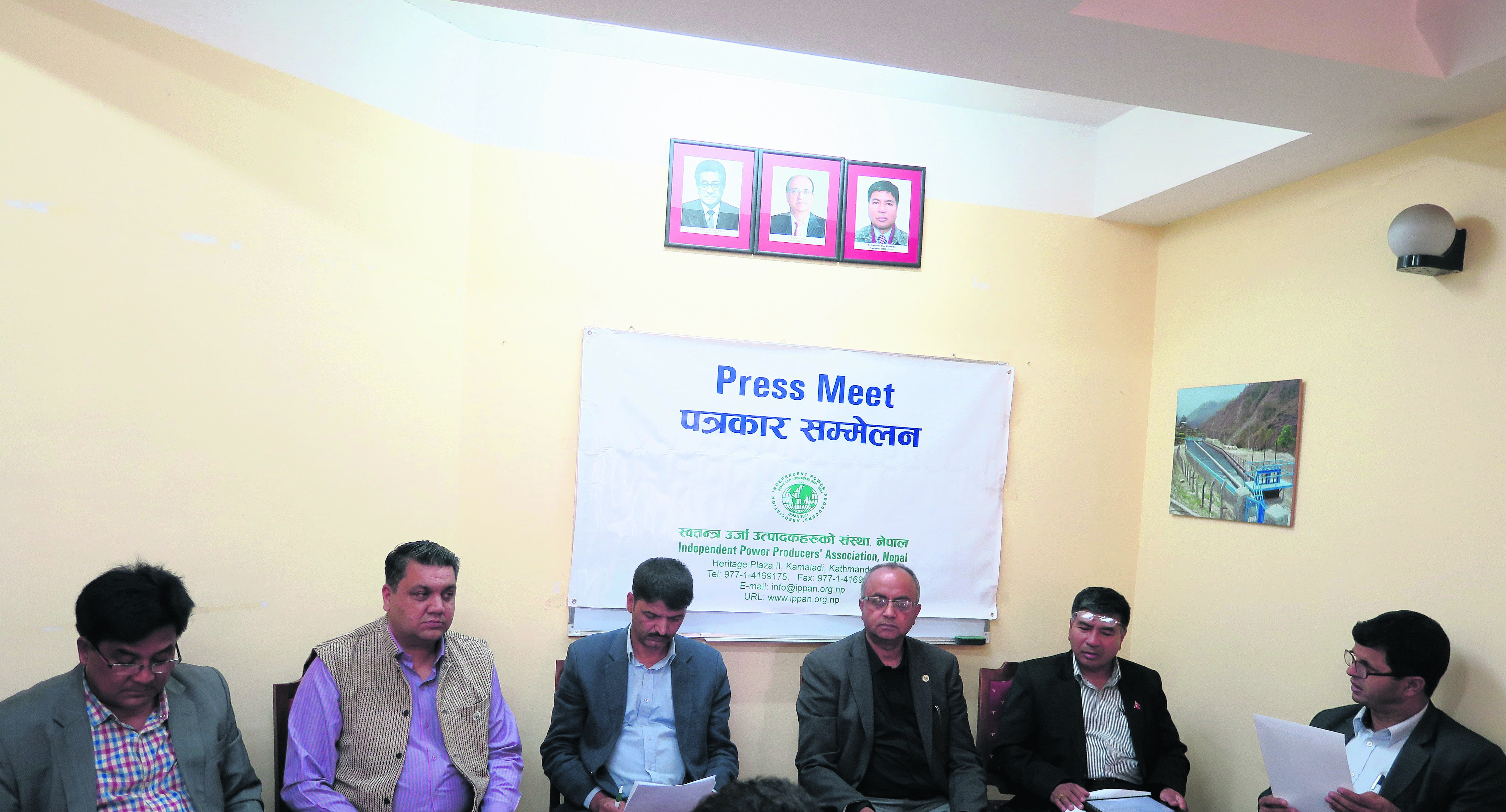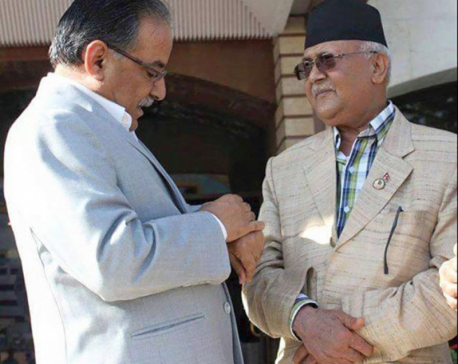
OR
policy unpredictability
Govt brings back environment fee lifted by K P Oli govt
Published On: April 4, 2017 09:27 AM NPT By: Rudra Pangeni | @rudrapang

KATHMANDU, April 4: A one percent fee that was being charged separately for environment services for hydropower project companies lifted by the previous government led by K P Sharma Oli using a cabinet policy decision has been brought back by the current government.
The fee -- also called Pay for Ecosystem (PES) -- is charged on net profit of hydropower companies.
The fee was lifted after years of lobbying in February 2016 through the endorsement of the National Energy Crisis Reduction and Electricity Development Decade (2016-2026) by the cabinet. But the current government has reintroduced it through an amendment of the Forest Act.
The fee-cut was one of the key features of the decade-long plan which aimed to encourage production of 10,000 MW electricity in a decade and facilitate hydropower companies through the policy reform.
Going against the decision, the Ministry of Forest and Soil Conservation inserted the ‘PES’ in the new bill for amendment of the Forest Act which was endorsed through the parliament in October 2016.
Hydropower companies only came to know about the change in policy recently after they received letters issued by the forest and soil conservation ministry asking them to pay PES.
“The forest ministry has imposed PES fee again going against the cabinet decision about facilitating hydropower projects and we are sad and it is unfortunate” Shailendra Guragain, the chair of the Independent Power Producers’ Association, Nepal, said at a press meet on Monday organized to protest the decision.
“The contradictory decision by the forest ministry acting as a parallel government with the Office of the Prime Minister and the Council of Ministers has put more burden on us,” Guragain said.
About two dozen companies said they recently received letters from Ministry of Forest and Soil Conservation asking them to pay PES. “We came to know that the ministry reintroduced PES recently,” Guragain added.
Erstwhile Forest Secretary Udayachandra Thakur had announced the removal of PES in July 2016.
Policy unpredictability is a major bottleneck for investors in the country.
Power-plant operator companies pay a royalty of Rs 100 per each kilowatt of installed capacity annually in the first 15 years of operations and 2 percent of the average prices of each units of electricity sold. All royalties are paid to the government through the Ministry of Energy.
In the sixteenth year and onward, per-kilowatt royalty becomes Rs 1,000 per annum and 10 percent of the average price of each units of electricity sold. The companies have to also pay income taxes after paying two types of royalties and PES on net profits.
“It is really burdensome to pay royalties to each ministry, one after another,” Subarna Das Shrestha, managing director of Sanima Hydropower Private Ltd, complained. His company started generating from a 22-MW hydropower plant last year.
“According to the plan, the forest and energy ministries had to share royalties between them but they did not. Rather, the forest ministry arbitrarily imposed fees,” Shrestha added.
The forest ministry, however, says it inserted PES fees into a new law to keep the environment intact using the collected money and share the benefits with citizens downstream and upstream of hydropower plants. “International conventions on environment that Nepal has ratified are the basis for PES,” Yagya Dahal, deputy spokesperson of Ministry of Forest and Soil Conservation, said.
You May Like This

New govt should follow course set by incumbent govt: PM Oli
KATHMANDU, July 30: Prime Minister KP Sharma Oli has said the next government was expected to follow the course set... Read More...

Oli, Dahal to head govt, party by turns
KATHMANDU, Feb 15: The two communist parties holding near two-thirds seats in federal parliament and six of the seven provincial assemblies... Read More...

Oli, Dahal to head govt 'by turns'
KATHMANDU, Dec 18: CPN-UML Chairman KP Sharma Oli and CPN (Maoist Center) Chairman Pushpa Kamal Dahal will rotate the premiership for... Read More...





_20220508065243.jpg)


Just In
- Over 400,000 tourists visited Mustang by road last year
- 19 hydropower projects to be showcased at investment summit
- Global oil and gold prices surge as Israel retaliates against Iran
- Sajha Yatayat cancels CEO appointment process for lack of candidates
- Govt padlocks Nepal Scouts’ property illegally occupied by NC lawmaker Deepak Khadka
- FWEAN meets with President Paudel to solicit support for women entrepreneurship
- Koshi provincial assembly passes resolution motion calling for special session by majority votes
- Court extends detention of Dipesh Pun after his failure to submit bail amount










Leave A Comment